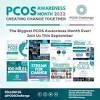Meningococcal case at Christchurch hall of residence highlights low ...

The Meningitis Foundation Aotearoa New Zealand says a university student who contracted meningococcal disease while living at a hall of residence in Christchurch could have been vaccinated had Pharmac and Te Whatu Ora moved more quickly.
The organisation is urging all eligible people – particularly those living in halls of residence in their first year of tertiary study – to seek vaccination for both meningococcal B and the ACW & Y strains of the disease.
On 1 March 2023, Pharmac began funding the meningococcal B vaccine (Bexsero) for all children up to 12 months of age (with a relevant catch-up programme), and for people aged 13 to 25 years who are entering into or in their first year of specified close-living situations (with a limited catch-up programme).
The criteria are the same as those for existing meningococcal ACW&Y vaccine, which is also free to eligible groups.
The Meningitis Foundation’s chair, Gerard Rushton, says it is the third such case of meningococcal in Canterbury this year, and follows on the back of a 71.5% rise in cases in 2022 (compared with the previous year). He says that the Government must move quickly on two fronts, firstly to drive uptake, and secondly to widen access.
“Firstly, we must move quickly to drive uptake of vaccines for both the ACW & Y strains, and for meningococcal B. It is an imperative that we protect our rangatahi,” says Gerard.
“Secondly, we must make access to both meningococcal vaccines, as well as the pneumococcal vaccine, free for all young people. We have already voiced our concerns, both publicly and directly with Te Whatu Ora, about the late rollout of an awareness campaign targeted at eligible age groups. Sadly, this case demonstrates a lack of a robust and targeted awareness programme.”
Gerard says the implementation date of funding for the meningococcal B vaccination came far too late, missing the commencement of the academic year for universities and secondary schools. He says the increasing number of cases highlights that the eligibility criteria are not fit for purpose and must be extended to all 16-year-olds before they leave school.
“We’ve missed the boat, really. Aotearoa New Zealand has signed up to a World Health Organisation roadmap to defeat meningitis by 2030, and yet we continue to see policy measures that underperform.
“It is clear that first year students in halls of residence aren’t aware they are eligible to be vaccinated for free – we are missing a step here. The best way to achieve higher vaccination rates is to extend the eligibility criteria to all young people under 25.”
Gerard says the Meningitis Foundation urges all university students in their first year living in a hall of residence to get their free vaccinations for all strains of meningococcal disease.
“We urge you to reach out to your university’s health provider for more information. Meningitis is deadly. Protection through vaccination is free, and it will save your life.
“At the same time, we urge Pharmac to widen vaccine access to protect all rangatahi and tamariki.”


 New Zealand
New Zealand Argentina
Argentina  Australia
Australia  Austria
Austria  Brazil
Brazil  Canada
Canada  Chile
Chile  Czechia
Czechia  France
France  Germany
Germany  Greece
Greece  Italy
Italy  Mexico
Mexico  Nigeria
Nigeria  Norway
Norway  Poland
Poland  Portugal
Portugal  Sweden
Sweden  Switzerland
Switzerland  United Kingdom
United Kingdom  United States
United States 































